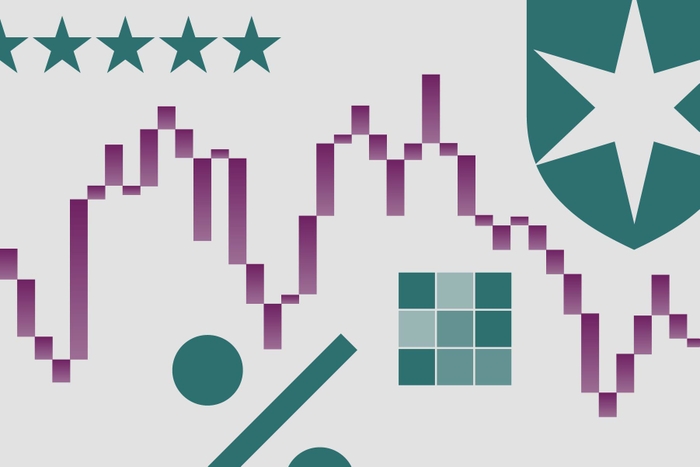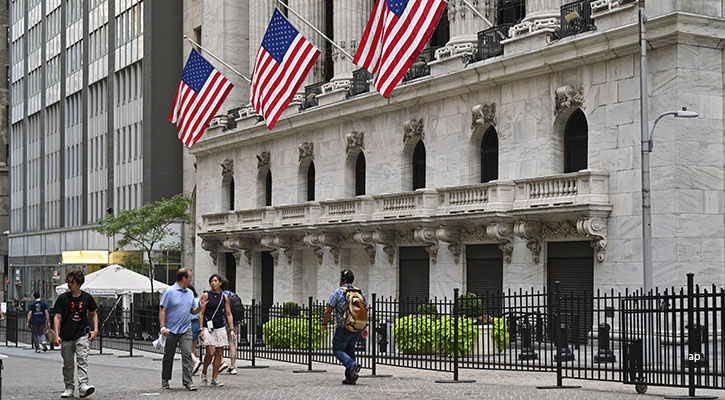
Category Winner: Best Asia-Pacific Equity Fund - MFS Meridian Global Equity W1 USD
Key Stats
Inception Date: 2010-02-08
Total Net Assets (Mil) (2017-02-28): USD 5,475.27
Manager: David R. Mannheim, Roger M. Morley, Ryan P. McAllister
M: Morningstar MFS: Fund Management Team
M: Could you highlight any major changes you made to the portfolio over the course of 2016? Were there any particular holding that drove the fund’s performance for the year?
MFS: In keeping with the strategy's long term investment horizon, portfolio turnover remained low in 2016, finishing the year at 12%1. As such, portfolio positioning was largely unchanged from a year ago, with the largest overweights to the health care, consumer staples and consumer discretionary sectors and underweights to the financials and energy sectors.
In health care, we have invested primarily in medical technology and life sciences companies with growth opportunities driven by long-term demographic trends and distinctive product advantages, but we do not consider most pharmaceutical and biotechnology companies attractively valued considering their future earnings risks. In consumer staples and consumer discretionary, we continue to like a number of reasonably valued companies with strong brands, good pricing power and diverse geographical footprints, which should enable them to sustain above-average growth rates. While the slowdown in emerging markets has negatively impacted near-term earnings, we remain optimistic in their long-term prospects which continue to be driven by expanding wealth and consumer demand in emerging markets.
Our persistent underweight to financials has been driven by our view that most developed market commercial banks and insurance companies cannot grow faster than global GDP through a full economic cycle, and we have concerns around regulatory risk, increased capital requirements and lower returns for these companies going forward. Our top holdings in financials are represented by several global leaders in investment servicing and electronic payments. We continue to believe most integrated energy companies face declining reserves and rising costs, and are expected to deliver incrementally weaker free cash flow with lower returns on invested capital. While oil prices and energy stocks rebounded in 2016 (following a precipitous decline since late 2014), we believe the share prices of most energy companies still have not yet fully discounted their earnings downside risks, and have refrained from investing in the sector.
Portfolio turnover did increase modestly in the fourth quarter, as we took advantage of relative valuation opportunities in response to the market's sharp rotation from defensive oriented stocks into more economically sensitive stocks. Against this backdrop, we took advantage of valuation declines to add to select positions in health care and consumer staples, because we believed that the market overreacted to modest earnings disappointments during the fourth quarter. On the other side of the trading blotter, we took advantage of relative strength in financial services stocks to trim several positions, where we felt valuations more than reflected the potential of a better economic environment and widening interest margins.
The MFS Meridian Funds - Global Equity Fund (W1 USD share class) underperformed the MSCI World Index benchmark for the full year, primarily due to the negative impact of stock selection and overweight in consumer staples as well as the underweight exposure to energy, which was partially offset by stock selection within health care (particularly medical technology / life sciences stocks), retailing, transportation and leisure. Relative performance had been strong until late in the year when equity markets rotated from defensive, stable growth companies (such as consumer staples) toward more economically sensitive, lower return-on-equity (ROE) and lower valued companies (such as banks). It would appear this change was prompted by an anticipation of fiscal stimulus, improved economic growth and increased inflation expectations. The outcome of the US presidential election added momentum to this new direction, leading to a "Trump risk-on rally" with significant rotation in equity markets.
Despite the adverse impact on relative performance of the late year rotation, the fund's relative performance remains strong over the long term. On a long term basis, outperformance has been driven by stock selection, mainly because the companies held in our portfolio have delivered more resilient and sustainable earnings growth and returns than the broader market through cycles, and we have invested those companies at attractive valuations.
1 calculated as (Lesser of Purchase or Sales)/Average Market Value.
Performance Results (%)
Average annual rates of return at NAV
MFS Meridian Funds - Global Equity Fund (W1 USD share class) as of 31 Dec 2016
|
|
Portfolio (%) |
Benchmark ^ (%) |
Excess return vs benchmark (%) |
|
1 year |
7 |
7.51 |
-0.51 |
|
3 year |
2.83 |
3.8 |
-0.97 |
|
5 year |
11.27 |
10.41 |
0.86 |
|
10 year |
5.19 |
3.83 |
1.36 |
The source for all fund data is MFS. Source for benchmark performance: SPAR, FactSet Research Systems Inc. Start of Fund Performance Record: 17-Mar-89. Start of Class Performance: 08-Feb-10. Fund Inception Date: 12-Mar-99.
The MFS Meridian Funds offer several share classes each with different expenses. Performance reflects the performance of a relevant older class with the same currency until the actual start of class performance record of the class detailed. Performance for periods prior to that date may have been higher or lower had the actual share class fees and expenses been reflected. Other share classes are available for which performance and expenses will differ.
^ MSCI World Index (net div)
M: What is your outlook for 2017 specific to the markets you cover, and how are you positioned to take advantage of opportunities and/or mitigate potential risks?
MFS: The key question we believe investors need to ask themselves is are we in a new paradigm in the wake of the US presidential election? Can US growth improve as a result of fiscal stimulus and a lighter regulatory burden, with positive implications for growth and policy reform elsewhere in the world? Conversely, are we instead in the late stages of the economic expansion and approaching market peaks? In our view, there is more evidence that we are getting closer to the end, given the length of the economic recovery, the risk that increased debt levels and rising interest costs overwhelm poorly targeted tax cuts, as well as potential dislocations from trade and currency moves. Outside the US, whilst economies and market cycles are at different stages of recovery, underlying fundamentals are often weaker, offset largely by lower relative valuations.
For the last few years the combination of declining bond yields, low inflation and a benign economic environment had driven equity markets higher. This period had been characterized by outperformance of growth over value, defensives over cyclicals, and the success of lower volatility strategies. However, in the fourth quarter of 2016 we saw a meaningful reversal of this trend with bond yields rising sharply, and more cyclically exposed, lower valued stocks performing strongly. More economically sensitive, lower return on equity (ROE) and lower valued companies (such as banks) have generally outperformed; whereas many higher quality, long duration and relatively stable stocks (such as consumer staples) have underperformed.
It would appear this change was prompted by an anticipation of fiscal stimulus, improved economic growth and increased inflation expectations. The outcome of the US election added momentum to this new direction, leading to a "Trump risk-on rally" with significant rotation in equity markets. Whilst market attention seems to be focusing mainly on the potential positives of Trump’s campaign promises of tax reform, infrastructure spending and regulatory easing, we won’t really be able to assess his administration's agenda until it begins to take shape over coming months and years.
We believe the key driver of the MFS Meridian Funds - Global Equity Fund (W1 USD share class) long term outperformance has been stock picking – identifying companies that can deliver higher than average growth and returns through a market cycle at reasonable valuations. Although recent market moves have been detrimental to short term performance, relative valuations for the Fund holdings have become more attractive while their underlying fundamental drivers of growth and returns have changed very little. We remain confident our differentiated, truly long term investment approach will continue to deliver outperformance over time.
M: Can you comment on the macro risks in the global economy, such as the change in leadership in the US, and the significant headwinds faced by emerging markets? How do these risks affect your investment decisions?
MFS: We believe the primary risks to global equities include elevated valuations, geopolitical uncertainty stemming from upcoming elections in Europe and threats to global trade from Brexit, the new US administration, and potentially other populist movements.
With regard to the change in leadership in the US, the market appears to be pricing in all the potentially positive “reflationary” elements of Trump's agenda — tax and regulatory reform in particular — but ignoring the administration’s policies on trade which could hurt global trade. We don't believe the economy has broken free from the low-growth trajectory we have been operating in since the end of the financial crisis in 2009. We continue to believe we’ll be in a lower return environment for some time to come and that investors would do well to stay the course and take a long-term view of their investment approach, and remain aware of the importance of risk management and downside risk management, especially since we are so long into the current economic cycle.
M: How is your investment team organized? Have there been any changes to the investment team or structure over the past year? Do you anticipate adding to the team in the near future?
MFS: Portfolio Managers David Mannheim, Roger Morley, and Ryan McAllister have overall responsibility for portfolio construction, final buy and sell decisions, and risk management for the Global Equity strategy, and MFS Meridian Funds - Global Equity Fund (W1 USD share class) is under this strategy. Institutional portfolio managers take a leadership role in client communications, participate in the research process and strategy discussions, assess portfolio risk, customize separate account portfolios to client objectives and guidelines, and manage daily cash flows.
David joined MFS in 1988 as a research analyst and was named portfolio manager for the Global Equity strategy in 1992. Roger joined MFS in 2002 as a research analyst. He was named portfolio manager for the Global Equity strategy in 2009. Ryan joined MFS in 2007 as a research analyst and was named a co-portfolio manager for the Global strategy in 2016. MFS announced in June of 2016 that David plans to retire sometime between June 2017 and June 2018.
Ben joined MFS in 2005. He was named institutional portfolio manager for the Global Equity strategy in 2005. Sanjay joined MFS in 2007. He was named institutional portfolio manager for the Global Equity strategy in 2008. Victoria joined MFS and the Global Equity team in 2011. Chris joined MFS and the Global Equity team in 2015.
In managing this strategy, the Global Equity team has the benefit of drawing on the entire investment resources of the firm, including the global research analyst team and other portfolio managers. While additional core equity team members Kevin Beatty, Marcus Smith, Ted Maloney, Daniel Ling, and Filipe Benzinho do not make buy and sell decisions for the Global Equity portfolio, they actively contribute by interacting with the Global Equity team with respect to new ideas and investment discussions, which complement the more structured idea generation from the global research analyst team. In addition, Investment Product Specialists Richard Chiu, Peter Loncto and Nicole Neubelt work closely with the team in discussing portfolio strategy and performing portfolio analysis, and they help to communicate investment strategy and positioning to clients, consultants and prospects.
M. Can you highlight any areas where you feel that the investment team or the investment process can be improved upon?
MFS: In terms of decision making, we believe our investment process is sound. Although we are confident in our team and our investment process, we always continue to learn from decisions that don't work out and thus become better investors. Consistent with our focus at the individual stock level, we are always trying to ensure that we learn from stocks that don't work and ensure that we don't make the same mistake more than once.
View all Morningstar Hong Kong Fund Awards 2017 articles here.

















